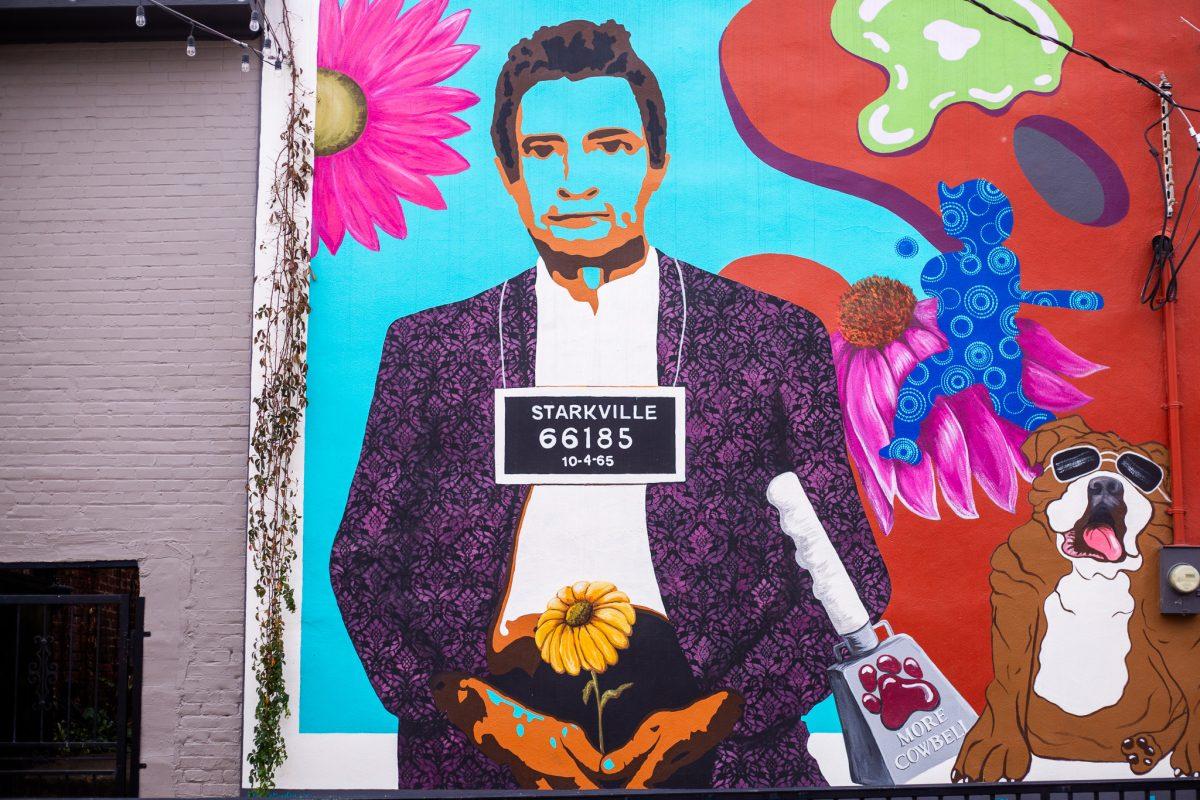Ronnie Davis, aged 74, leaned against the counter at the AAA Jewelry and Loan with a pack of Marlboros in his shirt pocket, instruments lining the wall behind him.
“This is how I keep myself busy,” Davis said, gesturing to the mandolins, guitars and banjos along the wall — Elvis figurines and record sleeves scattered around.
Davis has been playing for a long time and has played professionally for several big names, including Starkville’s beloved Johnny Cash.
“I played drums for Johnny Cash, Big Joe Williams, Carmol Taylor, George Jones and a bunch of people I don’t even remember,” Davis laughed, slamming a pen down on the glass countertop. “Girl, I lived this.”
Davis grew up attending an evangelical church where his dad was the preacher, his mother was the music leader and he and his five siblings were the choir and worship band.
“I got my first guitar at eight years old. All my daddy knew, and all we knew, were the D, C and G chords. I play by ear. I play guitar and drums. Now, I don’t know the banjo, but I can play it a bit,” Davis said, taking a banjo down off the wall. He plucked the strings and sang softly as the pawn shop bustled around him.
Davis was at the Johnny Cash concert the infamous night Cash spent in Oktibbeha County Jail.
“That actually was my first real concert,” Davis said. “It was the first one I attended. You know, he was staying down at that motel,” he said, jerking his thumb to the old University Motel sign. “He was staying right there. I heard the story told later, and it sounds to me like Johnny Cash was stoned. I was told he was standing out there picking a lady’s flowers.”
Deborah Mansfield, the artist of the mural that features Johnny Cash in Downtown Starkville, has heard a different story.
“What I’ve heard is that Johnny was quite inebriated like he would get and was passed out in a bed of flowers. They took him to jail to dry out,” Mansfield said.
In his 1969 live album “Johnny Cash at San Quentin,” Cash performs the song “Starkville City Jail,” telling the story of his imprisonment in which he chose to focus on his flower-picking and left out the details of his inebriation.
“Well, we’ve been in several prisons — San Quentin, and Folsom prison and the Starkville, Mississippi jail,” Cash sings.
Cash then describes that night, claiming he was picking flowers when the police stopped him.
“I imagine the daisy-picking story gave him a better image,” Mansfield said.
The Johnny Cash story is a major part of Starkville’s culture and a key figure in Mansfield’s colorful mural.
“When I was asked to paint the mural, I was asked to include things about Starkville that were interesting, things that people may not know about. I personally love Johnny Cash and his music so I wanted to include him in this mural,” Mansfield said. “His story of being in Starkville and arrested for picking daisies was fun, even though that’s not really what happened. I didn’t want people to forget Johnny Cash and his talent, so I painted him bigger than life.”
Davis, who still has fond memories of backing Cash and other musicians, believes that music can have a significant impact on anyone.
“Music will put you in a different frame of mind. It’ll help you work through all of your anger and your disappointment,” Davis said. “When you listen to music, and hear what someone’s singing, what someone wrote, you can say to yourself, ‘That guy gets it. He understands.’”
Davis closed his eyes, reminiscing about days gone by.
“I used to drive to Tupelo to record backing tracks for songs, and they’d send that off to other places to be used. Heck, they’d send them to England,” Davis said.
Ronnie Davis gives kids who buy their first guitar at AAA Jewelry and Loan a free guitar lesson with their purchase, teaching the young people of Starkville their first chords in the shadow of the very motel Johnny Cash stayed in on that storied night.
The story of Johnny Cash's arrest was immortalized in a mural in downtown Starkville.














